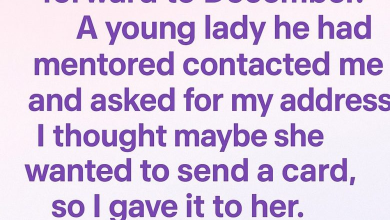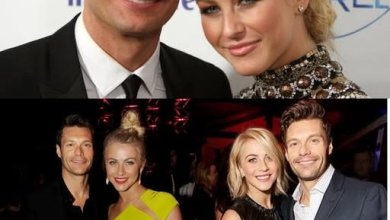The Student Who Saved Us At 2 AM Turned Out To Be Someone We’d Wronged Without Knowing


It Started With a Ride
It was 2 AM. My wife and I were driving home from a party when our car sputtered and died on a deserted stretch of road. No cell phones back then—just silence, stars, and the hum of waiting.
An hour passed before a beat-up Toyota Corolla pulled over. Out stepped a college student—lean frame, kind eyes, worn hoodie. He asked if we needed help. We offered money. He smiled and said, “Happy to help.” Then he drove us to town.
We never saw him again.
Not until years later, when my wife called me in tears. Her voice shook as she said, “Open the news.”
There he was.
Zayd Nouri. Newly elected mayor of our city.
But not just any mayor. The headline read:
“Former Foster Kid Turned Harvard Grad Wins Mayoral Seat Against All Odds.”
I remembered him instantly—that quiet calm, that easy laugh. I could still hear him say, “Just finished tutoring. Heading home.”
That night had become one of those stories we told at dinner parties—how a stranger rescued us in the middle of nowhere. But now, staring at the screen, it felt heavier.
Amrita, my wife, asked softly, “Do you remember what happened after that night?”
I did. He dropped us off at a diner. We thanked him, offered cash, he declined, and drove away.
She paused. “Not that. I mean—after. A month later.”
And then it hit me.
The complaint letter.
Back in the ’90s, I worked in city planning. Mid-level desk job—zoning applications, permits, safety inspections. That year, a tutoring center in the Old Market District was flagged for violations: blocked fire exits, poor ventilation, late paperwork. I’d pushed the complaint hard. Thought I was doing my job.
The name of the center?
Bright Steps Learning Center.
The same one Zayd had mentioned that night.
“Oh god,” I whispered.
Amrita had already put it together. “He worked there. That was his job.”
I felt sick.
We watched his acceptance speech. His voice was deeper now but carried that same steadiness. He thanked his foster mother, mentors, and then said something that made Amrita cry again:
“To those who believed in second chances—I remember you.
And to those who shut doors—I remember you, too.”
No bitterness. Just quiet resolve.
I hadn’t known I’d hurt him. That center closed three months after I flagged it. For me, it was just a file. For him, maybe it was rent. Maybe survival.
A week later, I went to his public meet-and-greet. Didn’t tell Amrita. I wasn’t sure what I was looking for—maybe forgiveness.
When I reached the front of the line, he looked at me.
“You look familiar,” he said.
My heart pounded. “We met years ago. My car broke down.”
Recognition dawned. “Route 9. You gave me a ride.”
He smiled. “That night changed something for me. I was exhausted. Ready to quit. That job barely paid. But after I dropped you off, I thought—maybe the world notices when you try to do good. I stuck with it. Saved up. Got a scholarship. One thing led to another.”
I felt breathless. He saw me as part of his origin story.
“I think I hurt you,” I said quietly. “I worked in zoning. I flagged Bright Steps. I didn’t know you worked there.”
He didn’t flinch.
“You probably weren’t wrong,” he said. “That place was falling apart.”
I blinked. “Still. I didn’t think about the people behind it. I’m sorry.”
He nodded. “Sometimes we need the push, even when it hurts. If that center hadn’t closed, I might’ve stayed stuck. Never applied out of state. Never left.”
His grace stunned me.
As I turned to leave, he added, “I don’t hold grudges. But I do remember. All of it.”
That line stayed with me.
A few weeks later, Amrita and I started volunteering—mentoring kids, reviewing résumés, tutoring math. Not out of guilt, but because we finally understood what a small kindness could grow into.
Then came the twist.
Six months into his term, Zayd launched a pilot program called Rebuild Roots—focused on second chances. Foster youth, returning citizens, people rebuilding their lives. Apprenticeships, certifications, small business grants.
He invited us to the launch.
We sat in the back, hoping to stay invisible—until his speech.
He scanned the crowd and pointed us out.
“I want to thank two people here tonight who probably didn’t realize how big a role they played in my story.
They were strangers once. Then a memory. Now, part of something bigger.”
The room turned to look. My ears burned. Amrita squeezed my hand.
I don’t think we deserved the applause. But I’ll never forget how it felt.
It made me believe in quiet redemption.
You don’t always get a second chance to fix a wrong. But sometimes, life circles back—not to erase the past, but to honor it.
The kid we helped for one night ended up helping thousands.
It started with a ride.
It became a movement.
If there’s one thing I’ve learned, it’s this: never underestimate the power of a single moment. You might be a footnote in someone’s story—but that footnote could change their entire chapter.
If you’ve read this far, share it with someone who needs reminding:
Kindness matters.
It always has.
It always will. ❤️




